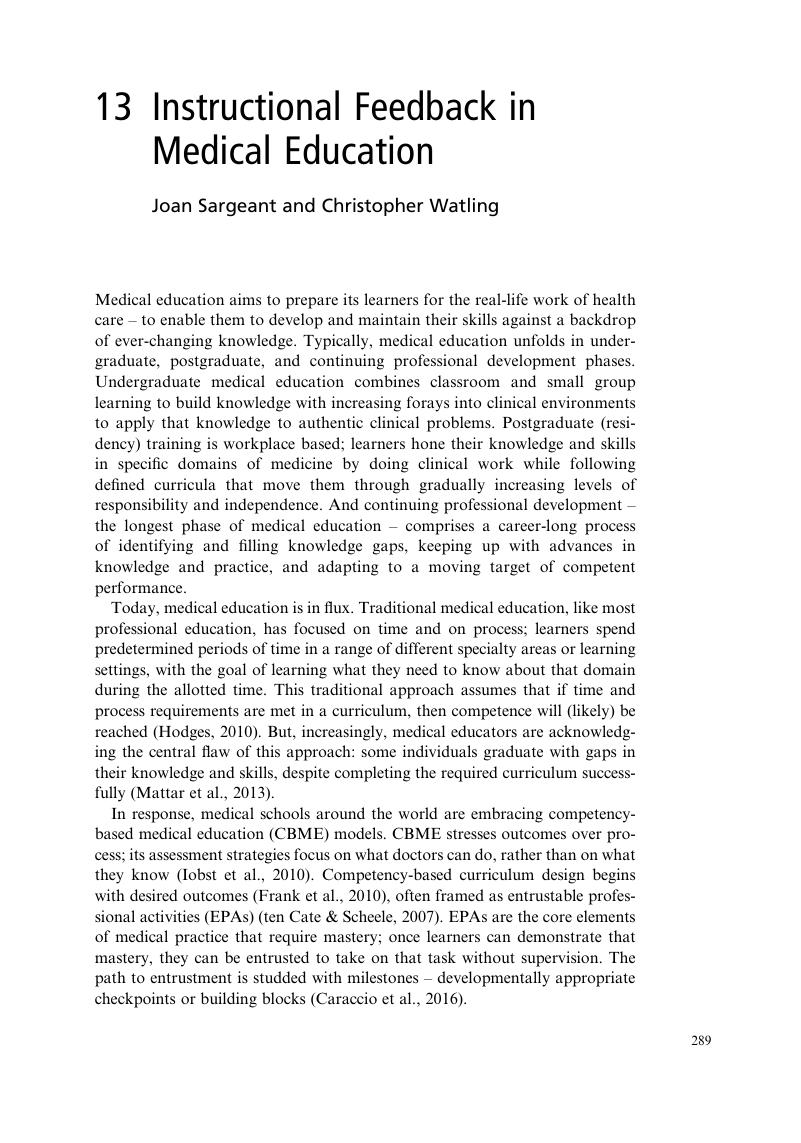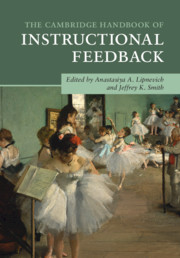Book contents
- The Cambridge Handbook of Instructional Feedback
- The Cambridge Handbook of Instructional Feedback
- Copyright page
- Contents
- Figures
- Tables
- Contributors
- Foreword
- Preface
- Acknowledgments
- Part I Theoretical Foundations
- Part II Domain-Specific Feedback
- 6 Assessment Feedback in Primary Schools in Singapore and Beyond
- 7 Instructional Feedback in Writing
- 8 Instructional Feedback in Mathematics
- 9 Looking Closely at Mathematics and Science Classroom Feedback Practices
- 10 Instructional Feedback in Music
- 11 Feedback and Noncognitive Skills
- 12 Feedback in Tertiary Education
- 13 Instructional Feedback in Medical Education
- 14 360-Degree Feedback at the Workplace
- Part III Contexts and Sources of Feedback
- Part IV Student Responses to Feedback
- Part V Concluding Remarks
- Index
- References
13 - Instructional Feedback in Medical Education
from Part II - Domain-Specific Feedback
Published online by Cambridge University Press: 02 November 2018
- The Cambridge Handbook of Instructional Feedback
- The Cambridge Handbook of Instructional Feedback
- Copyright page
- Contents
- Figures
- Tables
- Contributors
- Foreword
- Preface
- Acknowledgments
- Part I Theoretical Foundations
- Part II Domain-Specific Feedback
- 6 Assessment Feedback in Primary Schools in Singapore and Beyond
- 7 Instructional Feedback in Writing
- 8 Instructional Feedback in Mathematics
- 9 Looking Closely at Mathematics and Science Classroom Feedback Practices
- 10 Instructional Feedback in Music
- 11 Feedback and Noncognitive Skills
- 12 Feedback in Tertiary Education
- 13 Instructional Feedback in Medical Education
- 14 360-Degree Feedback at the Workplace
- Part III Contexts and Sources of Feedback
- Part IV Student Responses to Feedback
- Part V Concluding Remarks
- Index
- References
Summary

- Type
- Chapter
- Information
- The Cambridge Handbook of Instructional Feedback , pp. 289 - 312Publisher: Cambridge University PressPrint publication year: 2018
References
- 3
- Cited by



